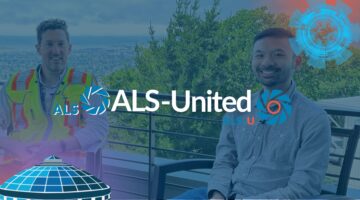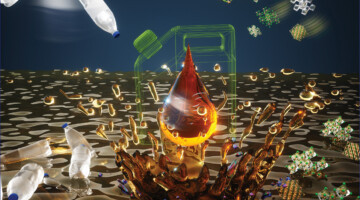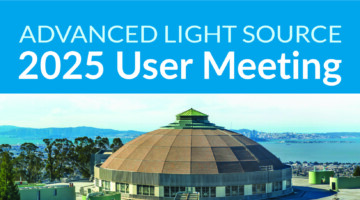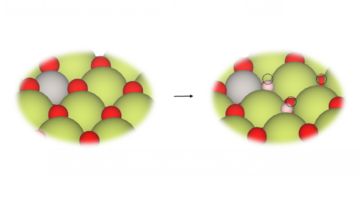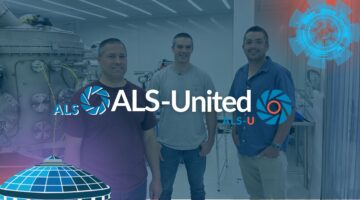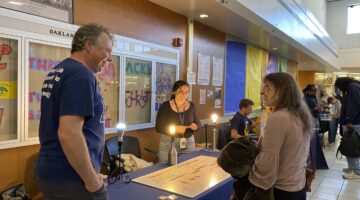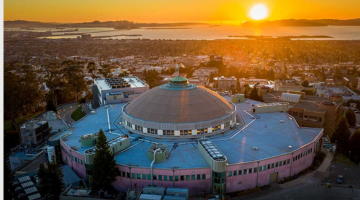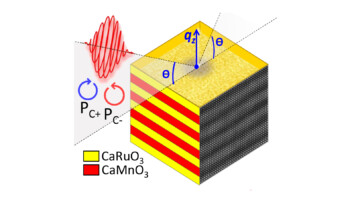ALS-United is an opportunity to meet the people collaborating at the Advanced Light Source and the ALS Upgrade Project. Hear firsthand how team science enables the cutting-edge research of today and builds the facility of the future. This month, we spoke with Jordan Caddick (Project Director in Projects & Infrastructure Modernization Division) and Calvin Lau (Principal Resource Analyst). Read more »
Congratulations to Our 2025 Retirees
Eleven people from the ALS community are retiring, with more than 220 combined years of service. Thank you all for your contributions to the ALS, and congratulations on your retirement! Read more »
Efficient Upcycling of Plastic Waste into Useful Liquid Fuels
Researchers found a way to turn single-use plastics (e.g., grocery bags and packaging) into useful liquid fuels, like components of gasoline or diesel, without needing high heat, rare metals, or added chemicals. The work presents a promising pathway to address the global plastic waste crisis, with both environmental and economic advantages. Read more »
2025 User Meeting Registration is Open
August 11–13, 2025: Join us in person at the DoubleTree at Berkeley Marina for the Advanced Light Source User Meeting. Register by July 28 to take part in talks, poster slams, hands-on workshops, tutorials, and an exhibitor fair with refreshments. Read more »
Catalysts Get a Boost with Atomic-Level Tinkering
A research team led by Berkeley Lab designed and fabricated catalysts by precisely tuning the co-localization of active metals—key catalytic centers for specific steps in reaction pathways—offering a new level of control over catalytic performance. Read more »
ALS-United: Don MacGill, Matt Warren, and Kyle McCombs
ALS-United is an opportunity to meet the people collaborating at the Advanced Light Source and the ALS Upgrade Project. Hear firsthand how team science enables the cutting-edge research of today and builds the facility of the future. This month, we spoke with Don MacGill (ALS Mechanical Technician Supervisor), Matt Warren (ALS Mechanical Technician Supervisor), and Kyle McCombs (ALS Mechanical Technology Group Lead). Read more »
Oakland Unified School District (OUSD) STEM Fair
Berkeley Lab returned to the OUSD STEM Fair in Oakland, offering a hands-on activity where students and their parents learn about the electromagnetic spectrum. The Lab’s booth was staffed by ALS staff members, Gianna Fazioliu, Ian Lacey, and Ina Reichel. Read more »
Bringing Discoveries to Light: Six Ways the Advanced Light Source Is Accelerating Technology Breakthroughs for Society
For over 30 years, the Advanced Light Source has provided powerful x-ray, ultraviolet, and infrared light, enabling breakthroughs in batteries, semiconductors, quantum materials, drug discovery, and more. We continue to achieve significant milestones that have advanced science and technology for the benefit of society. Read more »
A Deeper Look into Emergent Magnetism at Interfaces
Researchers shed new light on interfacial ferromagnetism in superlattices of alternating magnetic layers. By advancing our understanding of atomic-level interactions at magnetic interfaces, this work expands the scope of traditional interface studies and lays the groundwork for future innovations in magnetic storage and spintronics. Read more »
From Sequence to Structure: A Fast Track for RNA Modeling
RNA isn’t just a genetic messenger—it also folds into complex shapes to drive vital biological processes. Scientists are just starting to understand the many functions of these molecules, and how we can harness them for applications in environmental science, agriculture, and medicine. A powerful new RNA structure prediction tool is here to help. Read more »
- 1
- 2
- 3
- …
- 27
- Next Page »
